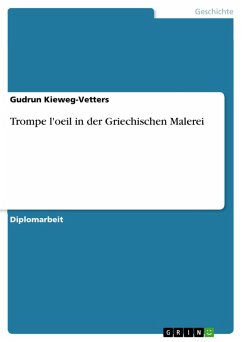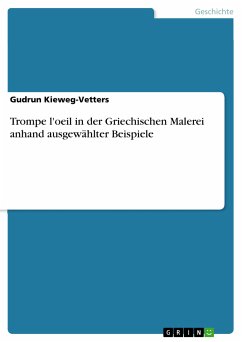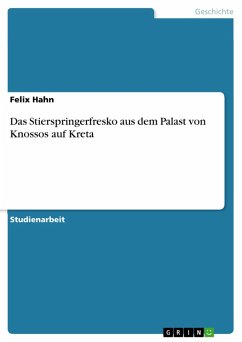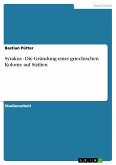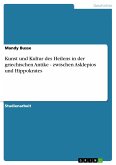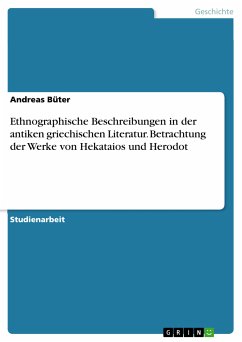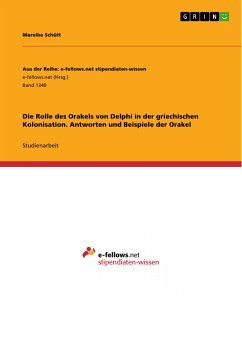Diplomarbeit aus dem Jahr 1997 im Fachbereich Archäologie, Note: 1,0, Universität Wien (Institut für klassische Archäologie), Sprache: Deutsch, Abstract: Trompe l'oeil in greek painting has been the subject of the author's thesis. The main topics have been the discussion of different definitions of the term "Trompe l'oeil", analysis of ancient sources concerning naturalistic paintings and the analysis of preserved mosaics and paintings up to the roman conquest, that imitate items in size, colour and place, where they are expected to be seen. This is the main aspect of Trompe l'oeil: deceiving the eye by imitating something in the most perfect way and in Greek, Etruscan and Italic tombs several examples are preserved and discussed in the book. The most prominent examples of ancient Trompe l'oeil are the anecdote of the competition between the painters Zeuxis and Parrhasios at the end of the 5th century B.C., the so called asarotos oikos (unswept floor) of the mosaicist Sosos of Pergamon (2nd century B.C) recorded in several roman copies and the signature of the mosaicist Hephaistion - also coming from Pergamon- showing a small piece of papyrus fixed to the floor by red sealing-wax. Just one corner is rolled up.
Dieser Download kann aus rechtlichen Gründen nur mit Rechnungsadresse in A, B, BG, CY, CZ, D, DK, EW, E, FIN, F, GR, HR, H, IRL, I, LT, L, LR, M, NL, PL, P, R, S, SLO, SK ausgeliefert werden.

